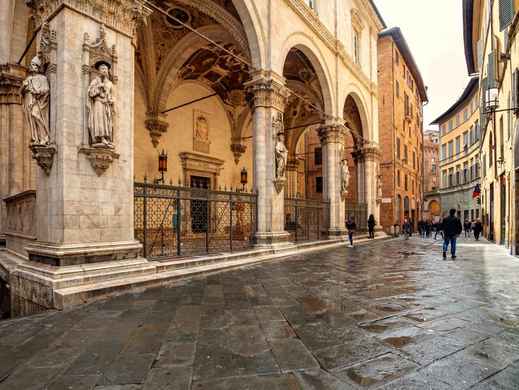Trieste
Europe
/
Italy
/
Trieste
Trieste is a city in Italy located in the northeast corner, bordering Slovenia. Situated on the Adriatic Sea, it has a long history as a trade and cultural hub due to its strategic position at the crossroads of Western and Eastern Europe. Over the centuries, Trieste has been part of various empires and countries, including the Roman Empire, the Austro-Hungarian Empire, and Italy.
In the 19th and early 20th centuries, Trieste was the main port of the Austro-Hungarian Empire and played a significant role in the region's economy and trade. Its cultural and ethnic diversity makes Trieste a vibrant city with a rich social life and unique culinary traditions. Italian, Austrian, and Slovenian influences are evident in daily life, including language, food, and local festivals.
Trieste is also known for its beautiful harbor views and classic architecture, such as Piazza Unità d'Italia, one of the largest seafront squares in Europe. Additionally, the city is famous for its distinctive cafes, where locals and tourists can enjoy a cosmopolitan atmosphere while sipping espresso. As a cultural and historical crossroads, Trieste continues to attract visitors with its unique charm, blending the past and present.

Travel Tips for Trieste
What you need to know before traveling here
Getting Around Trieste
A guide to Trieste's local transportation
The bus system in Trieste, operated by Trieste Trasporti, covers the entire city and surrounding areas. Buses are an efficient and affordable public transport option, with tickets available at kiosks, ticket machines, or via a mobile app. A single bus fare is around €1.35 for a 60-minute ticket. There is also a daily ticket option for €4.65, allowing unlimited travel for a full day.
Practical Tips for Trieste
Things to prepare and best way to visit
Trieste's unique blend of cultures results from its long history as part of various empires and countries, including the Roman Empire, the Austro-Hungarian Empire, and Italy. The city is a cultural crossroads of Latin, German, and Slavic influences, evident in its architecture, language, and local culinary traditions.
Key attractions in Trieste include Piazza Unità d'Italia, the largest seafront square in Europe, Castello di Miramare, a grand seaside castle, and Grotta Gigante, a vast cave worth exploring. Other highlights are the Canal Grande and San Giusto Cathedral.
Trieste is easily accessible through multiple means of transportation. You can fly into Friuli Venezia Giulia International Airport, take a train from major Italian cities, or drive from neighboring countries like Slovenia and Austria. Additionally, the Port of Trieste accommodates ferries and cruise ships.
Trieste is generally considered a safe city to visit. The crime rate is relatively low, and tourists can usually walk around safely both day and night. However, as in any city, it's advisable to stay alert and take basic security precautions with personal belongings.
Trieste offers a variety of local dishes reflecting Italian, Austrian, and Slovenian influences. Must-try dishes include Jota, a traditional soup with sauerkraut, beans, and pork; Boreto alla Gradese, a fish stew with garlic and vinegar; and strudel, a sweet pastry filled with apples or cherries.

Get to Know Trieste
Take a tour of this destination's highlights

Travel Tips for Trieste

Get to Know Trieste












 Facebook
Facebook Instagram
Instagram TikTok
TikTok Youtube
Youtube Twitter
Twitter Telegram
Telegram WhatsApp
WhatsApp
